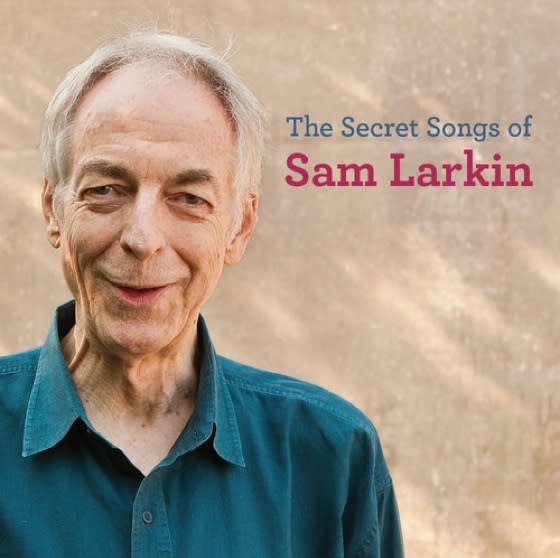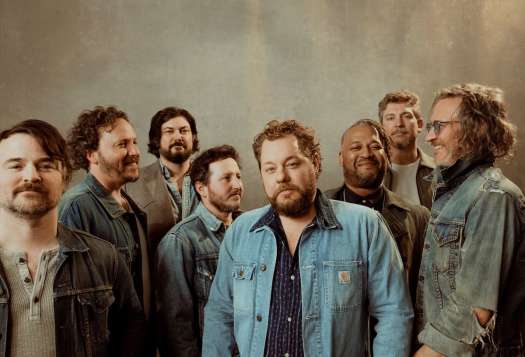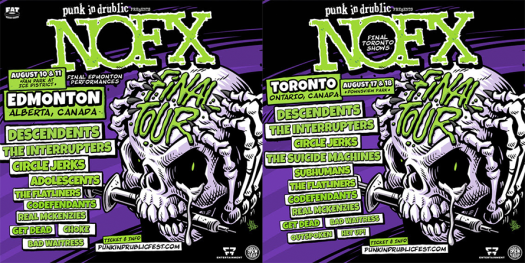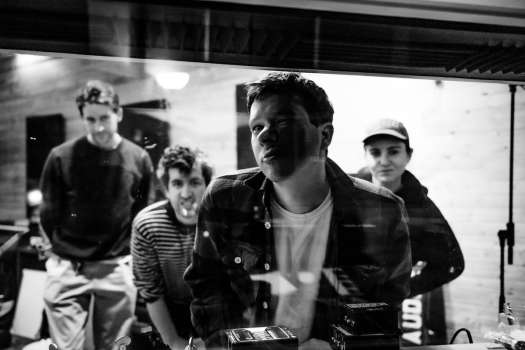Toronto songwriter Sam Larkin was famously secretive. He didn't like to disclose details of where he lived, what he'd done for a living — even his real name. Producer and longtime friend Bob Wiseman, who also recorded Larkin's 1989 self-titled debut (the one with Larkin's most well-known song on it, "Mirabeau Bridge"), speculates that Larkin admired trickster poets — chief among them, Bob Dylan — and wanted his songs to speak for themselves. Lucky for us, they do.
Larkin passed away in October 2013, after a lengthy battle with leukemia and cirrhosis of the liver, but not without first recording an album of new material in Wiseman's tiny office/studio at Toronto venue Tranzac (where, in the interest of full disclosure, it bears mentioning I take turns hosting a regular open stage event). Recorded over a series of Sunday mornings, The Secret Songs of Sam Larkin functions as Larkin's swansong to his expansive songwriting community, many of who knew him personally through Fat Albert's (a longstanding coffeehouse-style open stage) and considered him a friend.
The record was six years in the making, begun in 2009 when Wiseman realized that Larkin was sick and finished after a successful Indiegogo campaign last year. But some of the songs (including protest tune "Nuclear Waste") reach back further; Larkin had a great store of songs, and the album aims to capture some of his remarkable breadth as a writer.
I say breadth, but it might be more apt to say breadth of love songs, even though that sounds like a contradiction. Larkin wrote a lot of love songs, and even in songs where love isn't the focus, it often makes an appearance or plays a part. Cases in point: the breezy and infectious "Happy Just To Be With You"; the sentimental "Xmas Carol"; cheekily funny "One Thing She Likes"; or the rumbly and reverb-y watch-out-I'm-coming-to-get-you statement of a love song "You'll Find Out." Like Leonard Cohen or Johnny Cash, Larkin had a low old voice, and as he got sick, he became more prone to mumbling. To clarify his lyrics (and also, I think, to accentuate his melodies), Wiseman arranged a lot of backup vocalists (many female, or in the case of the Bicycles' Drew Smith's falsetto, easily able to pass) working in counterpoint, repeating what Larkin says.
If the production gets overly exuberant at times — weird tempos, piling sounds on — it's forgivable; Wiseman's stated goal was simply to knock Larkin's socks off. (And in fairness, I was used to hearing Larkin's songs relatively unadorned: just acoustic guitar and harmonica). When it works (and it usually works) it works wonderfully: the horns, strings and pedal steel egging Larkin's harmonica solos on; Wiseman's piano, keys and accordion providing just the right embellishments. There are a lot of great songs here, including, "No Guarantee," which should rightfully become a country classic. "Your Eyes," meanwhile, with its swirling strings and Larkin's feeling vocals, is — and excuse me if this sounds like hyperbole — a stately Larkin masterpiece. The decay at the end of that song, with just Tony Allen's violin, is perfect.
For those of us who knew him (Sam was a regular at the open stage I host) it is wonderful to simply hear his voice again on the spoken intro to album opener "I Can't Find Anything," with Spanish-inflected, wistful guitar, or at the end of the album's soulful favourite "I Don't Wanna Be The One."
(God Finds Cats)Larkin passed away in October 2013, after a lengthy battle with leukemia and cirrhosis of the liver, but not without first recording an album of new material in Wiseman's tiny office/studio at Toronto venue Tranzac (where, in the interest of full disclosure, it bears mentioning I take turns hosting a regular open stage event). Recorded over a series of Sunday mornings, The Secret Songs of Sam Larkin functions as Larkin's swansong to his expansive songwriting community, many of who knew him personally through Fat Albert's (a longstanding coffeehouse-style open stage) and considered him a friend.
The record was six years in the making, begun in 2009 when Wiseman realized that Larkin was sick and finished after a successful Indiegogo campaign last year. But some of the songs (including protest tune "Nuclear Waste") reach back further; Larkin had a great store of songs, and the album aims to capture some of his remarkable breadth as a writer.
I say breadth, but it might be more apt to say breadth of love songs, even though that sounds like a contradiction. Larkin wrote a lot of love songs, and even in songs where love isn't the focus, it often makes an appearance or plays a part. Cases in point: the breezy and infectious "Happy Just To Be With You"; the sentimental "Xmas Carol"; cheekily funny "One Thing She Likes"; or the rumbly and reverb-y watch-out-I'm-coming-to-get-you statement of a love song "You'll Find Out." Like Leonard Cohen or Johnny Cash, Larkin had a low old voice, and as he got sick, he became more prone to mumbling. To clarify his lyrics (and also, I think, to accentuate his melodies), Wiseman arranged a lot of backup vocalists (many female, or in the case of the Bicycles' Drew Smith's falsetto, easily able to pass) working in counterpoint, repeating what Larkin says.
If the production gets overly exuberant at times — weird tempos, piling sounds on — it's forgivable; Wiseman's stated goal was simply to knock Larkin's socks off. (And in fairness, I was used to hearing Larkin's songs relatively unadorned: just acoustic guitar and harmonica). When it works (and it usually works) it works wonderfully: the horns, strings and pedal steel egging Larkin's harmonica solos on; Wiseman's piano, keys and accordion providing just the right embellishments. There are a lot of great songs here, including, "No Guarantee," which should rightfully become a country classic. "Your Eyes," meanwhile, with its swirling strings and Larkin's feeling vocals, is — and excuse me if this sounds like hyperbole — a stately Larkin masterpiece. The decay at the end of that song, with just Tony Allen's violin, is perfect.
For those of us who knew him (Sam was a regular at the open stage I host) it is wonderful to simply hear his voice again on the spoken intro to album opener "I Can't Find Anything," with Spanish-inflected, wistful guitar, or at the end of the album's soulful favourite "I Don't Wanna Be The One."




